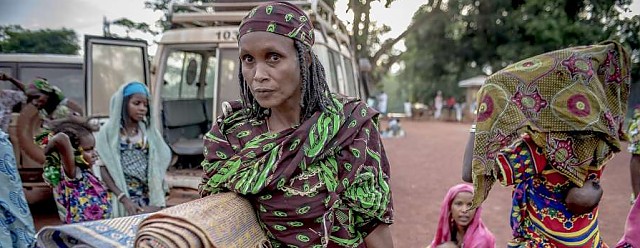Home > Who We Help > Women
Women

Particular Challenges and Risks
In many societies, women and girls face specific risks and are less likely than men and boys to have access to their rights, due to their gender roles and position in society. In situations of displacement, these risks – particularly discrimination and sexual and gender-based violence – can be exacerbated. Community support structures break down and traditional or formal justice systems may not uphold women’s rights. Unaccompanied women and girls, women heads of households and pregnant, disabled or older women may face particular challenges.
Women and girls comprise about half of any refugee, internally displaced or stateless population. UNHCR works to promote gender equality and ensure their equal access to protection and assistance. The integration of a gender perspective cuts across all sectors. For example, shelters should be safe for women and offer privacy, and assistance in construction or maintenance should be available. Food distribution systems should take family roles into account and ensure it reaches all. Sanitation facilities should be accessible and separated for men and women. Women should be able to collect water and fuel without risking rape or other abuse.
UNHCR also uses targeted actions to address specific protection needs. Programmes to increase girls’ enrolment and retention in school can overcome economic or cultural barriers to their education. Initiatives to increase women’s leadership and participation in decision-making help to identify and respond to their protection needs. The provision of sanitary materials improves health and increases freedom of movement. Livelihoods support can ensure women are not forced to engage in survival sex to provide for their families.
The UN refugee agency builds upon women’s resilience and strength to support their empowerment and strengthen their protection, and promotes their full participation in all decisions affecting their lives. Despite the many challenges, displacement can enable women to take on new roles and instigate positive change. With the appropriate support, refugee women can improve their lives and the lives of their children, families and communities.
Who We Work With to Help Women
UN agencies, NGOs, grassroots organizations and private-public institutions are included.
Refugee_Gender (UNHCR Gender Equality)
Refugee_Gender (UNHCR Gender Equality) promotes and focuses on gender equality in situations of displacement.
Female Genital Mutilation
UNHCR's commitment to the elimination of female genital mutilation (FGM).

















